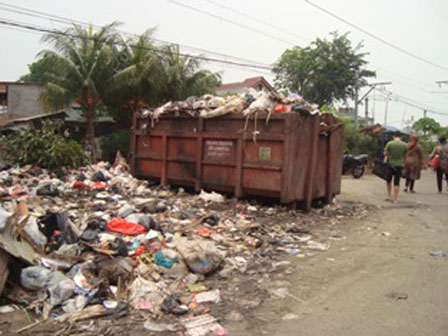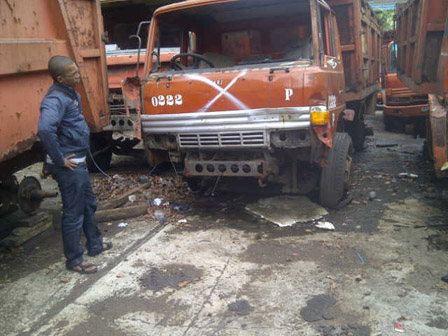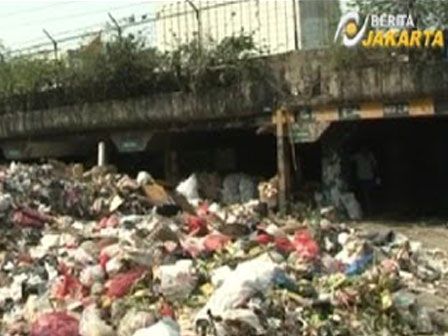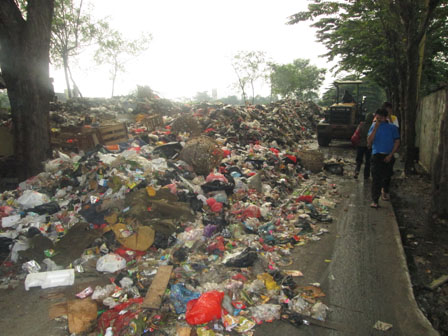Garbage Production in West Jakarta is the Highest
Reported by TP Moan Simanjuntak | Translated by Anisah Mardhatilla
Population density in a large area contributed to lead West Jakarta in the first place of the garbage biggest contributor in the city. Data from Jakarta Cleanliness Department, over the last year, from the region led by Mayor Anas Effendi, the volume of garbage transported to Bantar Gebang disposal site reaches 1,528.03 tons. While subsequent position occupied by East Jakarta with its 1,493.82 tons garbage, then followed by South Jakarta 1,166.67 tons, Central Jakarta 1,031.87 tons, and the last is North Jakarta 1,340.08 tons.
With so many people living in West Jakarta, automatically there will be more trading transactions to fill the needs of food and clothing and produce more garbage than other region
Deputy Head of Jakarta Cleanliness Isnawa Adji explained that the high volume of garbage in West Jakarta is in the first rank in the city because West Jakarta has a fairly wide area with high population density.
"With so many people living in West Jakarta, automatically there will be more trading transactions to fill the needs of food and clothing and produce more garbage than other region," said the former head of Tambora Sub-District, West Jakarta, Friday (4/11).
Trashes Piling 5-Meter High, Kalianyar Residents ComplainedEven so, Isnawa said that the garbage problem in the capital city of should be resolved in many aspects. Starting from the addition of transporting trucks, the routine scheduled transporting, and the most important thing is the public role to participate in managing the garbage. So this garbage problem is not only burdened to Jakarta Cleanliness Department.
For the current garbage transportation, said Isnawa, the Cleanliness Department has 823 truck units. Of that total, 506 garbage trucks are not feasible because of the age of the trucks are under 2002 while the rest are above 2002. The last garbage truck procurement was in 2013 as many as 92 units.
"Of this number, there are four additional trucks from the Taipei Economic and Trade Office (Teto) in Indonesia, and Jakarta Vice Governor, Basuki T Purnama will also add 51 units of trucks of entrepreneurs aid. While the 2014 budget, the Cleanliness Department will add about 132 truck units," explained Isnawa.
However, of the many units available, it does not seem to be able to address the garbage problem in the city. Therefore, public active role is needed in this garbage management. For that, Isnawa hoped that the community can continue to develop the garbage bank: reduce, reuse , recycle (3R), composting and so on in their respective territories. Until now, there are 120 banks and 220 points of 3R garbage scattered in five regions of the city.
"As the example, every urban village produce 50 tons garbage per day, if it is intensified in composting such as 3R and other garbage management program, the garbage can be reduced to 20 tons. It is an achievement. So the leaders of the region should also intensify this program, it is good for a clean city assessment and is also able to alleviate the poverty problem," said Isnawa.
Isnawa also suggested that large markets , malls, enterprises, buildings, and elite housing are able to manage their own garbage in this manner so that the garbage disposal is not only borne by the Cleanliness Department. Also, the elite housing, offices, and malls are suggested to be able to manage their own garbage by renting garbage trucks to dispose their garbage into TPST Bantar Gebang, Bekasi.
"But they must also consent to the Cleanliness Department. If there is no license, it cannot be wasted to Bantar Gebang," explained Isnawa.




